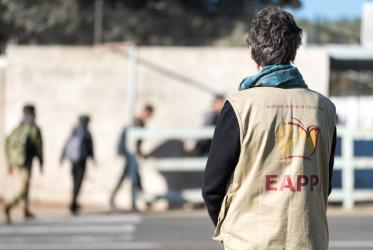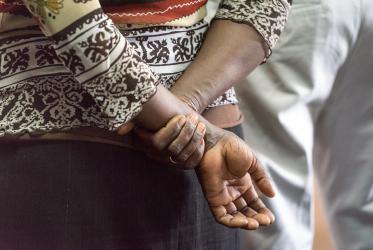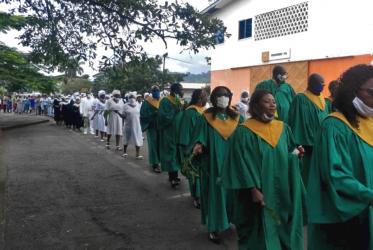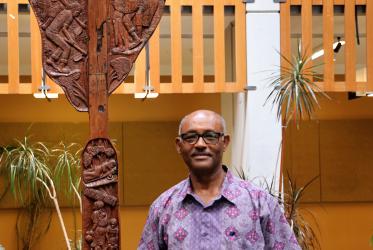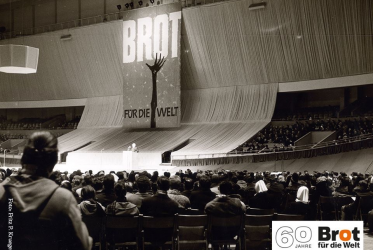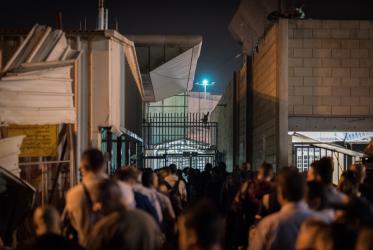Displaying 1 - 20 of 65
Ukraine: Responding to humanitarian need
08 September 2022
Former WCC executive finds joy working for peace in Ethiopia
06 August 2019
Shabbat dinner ‘helps humanize two sides of the story’
27 March 2019
WCC sends 60th anniversary greetings to Bread for the World
28 November 2018
Pan African Women of Faith issue fervent Call to Action
20 November 2018

